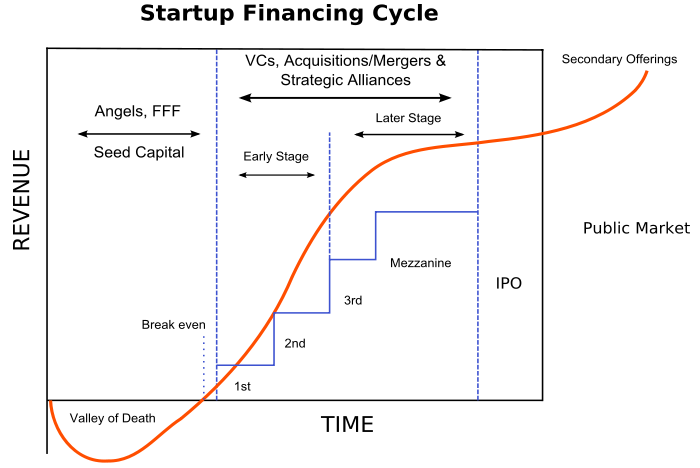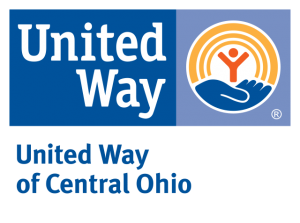
It all started with a problem.
Maybe you experienced the problem yourself, or you’re close to someone who has. Regardless, you have an idea for solving that problem, and you think you’re the right person to make that idea a reality.
On Friday night, you pitched the problem and your solution to a roomful of people. You hustled your ass off throughout the weekend: you worked through your idea with actual potential customers, and you know what? Your idea has legs. More than legs, it’s got rocket engines under it just waiting to be fueled up.
So you pitch your idea to your community and some funders on Sunday night — you ask them help fuel up your rocket engines — and how could they say no? You’ve taken something that was little more than a hint of a product and developed a business model and a social impact model, and, perhaps most importantly, you’ve ferreted out a bunch of assumptions just begging to be validated.
Now what?
Fast-forward to the Monday after any GiveBackHack event. If you’re one of the teams who were awarded funding, congratulations! Take a little time to celebrate and a little time to decompress.
The real work is just getting started.
If GiveBackHack is the launchpad for your socially-innovative idea, actually building the ship is up to you. And just like rocket science when it first started out, what you have on your hands is a series of hypotheses about your product and your business that need to be tested. In order to optimize the significant time commitment associated with starting your very new venture, you need to observe real change in the world that you caused by implementing some component of your idea.
This is what GiveBackHack funding is for.
We didn’t get to the moon before figuring out that we could fly, and GiveBackHack funding is intended to help you build your first set of wings that will hopefully get you off the ground.
What do we fund?
Simply put, GiveBackHack, through its amazing and gracious sponsors, has secured funds specifically to enable new ventures get from idea to some form of quantifiable validation.
What validation means will be specific to your business: it might be your first sale to someone who isn’t a friend or family member; it might be proving out the riskiest assumption in your business model; it might even be figuring out that you’ve started to create the wrong thing and need to pivot.
We can’t tell you what validation means for your business, but all forms of validation have at least one thing in common: observable outcomes.
For instance, GiveBackHack teams can use funds to reimburse themselves for incorporation costs. Incorporation is a necessary first step in a business’s journey, and we require you to be incorporated before we’ll release funds. It seems pretty basic, but there’s an observable outcome associated with incorporation: there was no legal entity representing the business and then there was a legal entity representing the business.
Likewise, let’s pretend for a minute that Zappos launched at GiveBackHack. After pitching their crazy idea to sell footwear online, Zappos might have realized that the riskiest assumption associated with their business model is their hypothesis that people will buy shoes online. To prove (or disprove!) that hypothesis, maybe they’d go take pictures of some shoes, throw them up on an ecommerce site, and then fulfill orders by actually buying shoes from a store.
And GiveBackHack, for its part, would have funded the website, the photography, and the initial order fulfillment, the critical and minimal pieces required to validate this assumption.
Is this a sustainable business model? Absolutely not! But Zappos learned quickly that people will buy shoes online, which helps them secure additional investment to scale their business properly, knowing that they’re not wasting their time and money. Plus, there was an observable outcome: they sold whatever number of shoes online they deemed was necessary to validate their hypothesis as proven.
What don’t we fund?
You’re probably two steps ahead of us here. Simply put, we don’t fund things that have zero chance of producing an observable outcome.
Is it a good idea to attend conferences relevant to your new venture to make new connections in your industry?
Yep.
Should you buy dinner or drinks to celebrate accomplishments?
Sure!
Can you learn a lot from professional workshops and training?
Without a doubt.
Will GiveBackHack fund these things?
… probably not.
Beyond a pocket full of business cards, a full stomach, or some more professional know-how, none of these activities result in outcomes or observable change in the world.
As important as these things may be to your team, GiveBackHack’s mission, both for you as the enterprising folks we serve as well as for the communities we seek to enrich, is to be a launchpad. We’re not mission control. We’re not astronaut training. We’re not rocket scientists, and we’re not the ticker-tape parade (although we will celebrate your success every step of the way!).
We just want to see you get off the ground. We’ll do whatever we can to get you there. But it’s that seeing part that matters the most at this stage in your development, proving to yourselves that you can stay in the air, even if it’s only for the 12 seconds you need to feel confident in taking the next step.
Staying in the air, however messy it may be, is the only real leading indicator that you’ll make it to the moon.
Further reading:
What I Learned Ending Our Software Startup After Six Months of Product Development
The Ultimate 8,000 Word Guide to Preventing Your Startup from Failing



